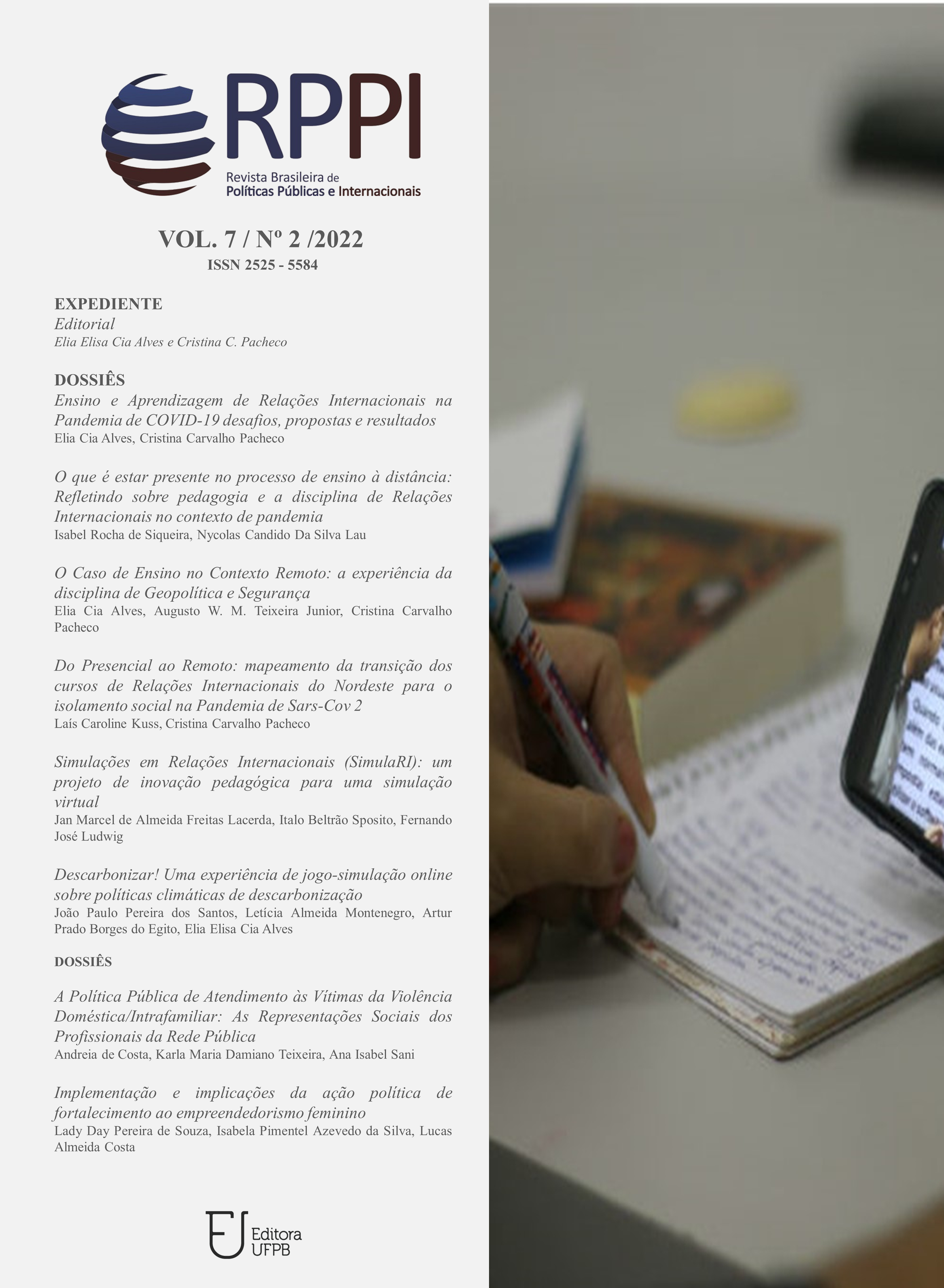TRANSITION TO REMOTE LEARNING DURING THE COVID-19 PANDEMIC
MAPPING THE TRANSITION INTERNATIONAL RELATIONS UNDERGRADUATE COURSES TOOK IN NORTHEASTERN BRAZIL FROM ATTENDANCE IN CLASS TO REMOTE LEARNING DURING THE PANDEMIC
DOI:
https://doi.org/10.22478/ufpb.2525-5584.2022v7n1.61187Keywords:
pandemics, COVID-19, Emergency Remote Teaching, International RelationsAbstract
The SARS-Cov 2 Pandemic has changed the world scene, including education. Faced with isolation measures, as Higher Education Institutions (HEIs) were forced to adopt Emergency Remote Education (ERE). This sudden transition impacted the routine of teachers and students in several ways and posed serious challenges to these institutions. In this scenario, the objective of this research is to map how the adaptation process carried out by the International Relations bachelor degrees in northeastern Brazil takes place in two moments of the pandemic: March 2020 and a year later, in 2021. For both, semi-structured ones were assigned with representatives of institutions in the region that offer a bachelor's degree in International Relations. We started with the question: how did the IES adapt its classes to the remote environment? The results point out paths for several reflections on the challenges of transition, remote education and the pandemic, in addition to differences between public and private institutions, both in speed and in the initiatives carried out.
Downloads
Downloads
Published
Issue
Section
License
Copyright (c) 2022 Laís Caroline Kuss, Cristina

This work is licensed under a Creative Commons Attribution 4.0 International License.
Autores que publicam nesta revista concordam com os seguintes termos:- Autores mantém os direitos autorais e concedem à revista o direito de primeira publicação, com o trabalho simultaneamente licenciado sob a Licença Creative Commons Attribution que permite o compartilhamento do trabalho com reconhecimento da autoria e publicação inicial nesta revista.
- Autores têm autorização para assumir contratos adicionais separadamente, para distribuição não-exclusiva da versão do trabalho publicada nesta revista (ex.: publicar em repositório institucional ou como capítulo de livro), com reconhecimento de autoria e publicação inicial nesta revista.
- Autores têm permissão e são estimulados a publicar e distribuir seu trabalho online (ex.: em repositórios institucionais ou na sua página pessoal) a qualquer ponto antes ou durante o processo editorial, já que isso pode gerar alterações produtivas, bem como aumentar o impacto e a citação do trabalho publicado (Veja O Efeito do Acesso Livre).




_.jpg)






.png)


.jpg)
_.png)
